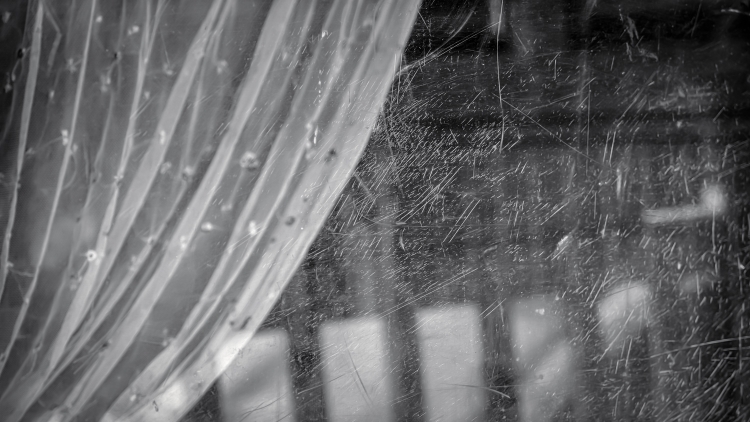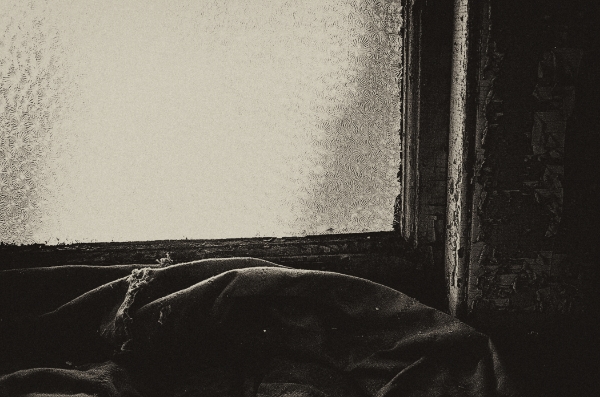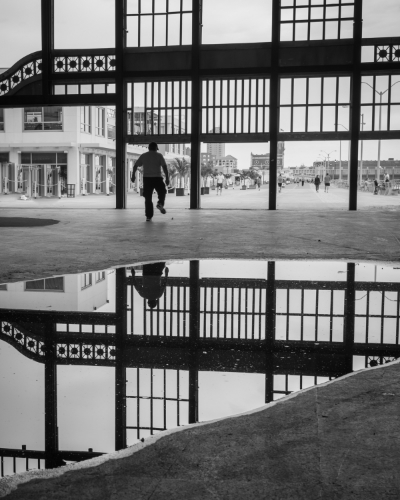
Image by Penelope Breen
Ahem. If it can be said that art represents humanity’s collective attempt to reconcile its own existence with an otherwise cold and uncaring universe, then it stands to reason that tragedy is art’s truest manifestation: watching the human ego fail to connect with anything other than itself. I gleaned this pearl through a steadfast and sustained personal study of ABC’s “The Bachelorette.”
Actually one specific, unscripted moment in the scripted reality of “The Bachelorette”: the first rose ceremony that concludes the debut episode of each new season of the show. For the uninitiated, the “rose ceremony” is the device through which the aforementioned Bachelorette—the most recent of whom happened to be a Mid-Western real estate developer named “JoJo”—determines which of the show’s contestants will remain with her on her journey towards true and everlasting love and which contestants will be sent home packing. Human connection, in this pantomime, becomes a scarce resource. To the keeper goes the bloom. To the losers, so many losers, go all the imaginary blooms that they thought they would be holding before JoJo cuts them loose.
Loathe as we may be to admit it, ours is a conclusively lonely existence: one fraught with sorrow and disillusionment in search of the proverbial one rose. That’s the torment heard in Juliet’s deathbed soliloquy, the longing behind the chords of Leonard Cohen’s “Hallelujah,” the panic in Edvard Munch’s “Scream” and the sadness beneath the sunglasses of Guy Fieri. And that’s the sense of soul-crushing desperation underlying perhaps the single most heart-wrenching, fully-realized American tragedy of this (or any) generation: one dramatized scene in a hit reality series, through which the most esteemed of a human gender—He with the Bright Smile teeth, He with the rippling ab-shield worn by a Grecian god on earth—is revealed as a grotesque creature in false clothing. He is an animal with a lifespan, and he is destroyed for lack of a flower.
I anticipate with mutual horror and fascination this first rose ceremony because, in every other rose ceremony to follow, the Bachelorette’s decision as to whom she’ll either extend or deny a rose will be an informed decision—based on a careful consideration of factors like compatibility, shared goals and interests. (As an aside, the episode wherein the “artistic contestant” inevitably writes a poem that attempts to rhyme with the Bachelorette’s name—in this season, “My JoJo” with “My Mojo” – approaches revelation. It is a stunning bit of wordplay that will echo through the halls of our literary canon.)
But the first rose ceremony is just a gut-call firing squad. The first rose ceremony is a human house-cleaning wherein JoJo, operating on intuition alone, makes a knee-jerk determination that there are several men in this house about whom she knows nothing except that she finds them immediately unappealing. She would strongly prefer that she never have to see them again. And so she never has to. It’s the human equivalent of those sticky chicken claws that get pushed around on Dim Sum carts in Chinese restaurants. You know that it’s technically food, but it’s also extremely unappetizing, and you really wish that the waiter would take it away so that you can go back to eating dumplings like a person.
Then it happens to the unsuspecting. Comes the rose, and I have shed tears for garbage-appetizers-of-men, dismissed on less than a whiff.
I cry for them not out of embarrassment but out of a genuine sense of loss, as their mouths slowly close and the light softly fades from their eyes. These men very clearly did not expect this to happen. (In fact, they very clearly expected the opposite to happen.) Why else would they have flown to California—abandoning their careers, their bars, their fitness routines—if not because they were fully convinced that what they brought to the table—their backstories, their personalities, their synthetically inflated pectoral muscles— would be sufficient to satisfy the romantic ideals of not only their season’s Bachelorette-Du-Jour but also those of an adoring American public?
I cry for these men because they bear the collective burden of embodying what may be the single harshest truth underlying our shared human experience: the image of ourselves that we think we’re projecting into the world is so comically divorced from the reality as to merit its own show on a major network.
We all think that we come across better than we do. We have to. It’s a necessary by-product of our self-preservation. If any of us were ever forced to honestly acknowledge the way that the world sees us as individuals—how visible our flaws, our deficiencies, our cartoonishly bizarre proportions—none of us would be able to muster the simple strength required to get out of bed in the morning. Maybe that’s the reason why the phrase “The Kind Of Place Where People Don’t Even Lock Their Doors” holds great currency in today’s real-estate market. It isn’t because of some overwhelming concern for personal safety. It’s because a world of unlocked doors is one in which we would never be forced to backtrack to a friend’s party, where we’ve just said our goodbyes, to retrieve a forgotten set of keys and stumble into a room where the people we love have already begun saying horrible things about us.
We’re all objectively terrible people. Those carnies at the amusement park are sketching our real faces. Yet, most of us operate under the delusion that we are somehow beloved, that we alone are exempt from the piles of judgment that we have no problem heaping on everyone else. We tell ourselves that, in our case, our worst traits are somehow actually assets. “I’m not annoying. I’m quirky.” “I’m not dumb. I have alt-smarts.” “I’m not trying way too hard. I’m really pulling off this indoor jean-jacket.”
No one thinks that they’re the person who’s going to be sent home on night one. Look, it isn’t as if we’re wholly unaware of the image that we present. We generally have the basic outline down. It’s just that, somehow, we’re encouraged to see our reflection and then completely forget it. The devil, they should say, is in our details.
For example, despite overwhelming empirical evidence to the contrary—evidence suggesting that the image that I actually present is that of a “bookishly approachable stranger you can rely on for accurate directions to any Banana Republic in the tri-state area”—I simultaneously maintain the completely unfounded illusion that I project a palpable sense of danger. Last week, walking down Atlantic Avenue in a blue bandana I’d recently started wearing in an attempt at a look that can only be described as “recently unemployed adjunct professor,” the thought crossed my mind that someone might see me and worry that the tree-lined streets of Brooklyn Heights had suddenly been infiltrated by a street gang.
I own a seltzer maker. I have a “tea connection” in Connecticut. I’ve started more than one conversation with the phrase, “You know, if you really stop and think about it, Matchbox Twenty is a pretty underrated band.” None of which stopped me from having the very real thought that, “I hope that no one sees me in my blue bandana and thinks that I’m in The Crips.” (I’ve been in gangs over the course of my lifetime. But they’ve been gangs made up of people who look like I do. Also known as “improv troupes.”)
Which brings me to my own personal moment of devastating self-realization. The moment when the entire facade I’d spent years carefully crafting for myself came cascading down in a crushing avalanche. The moment when, confronted with the entire set of options available to her, JoJo looked me in the eyes—squarely, deliberately—and mumbled, simply, “Nope.”
I was in Charleston, South Carolina, in town to perform a show I’d written and absolutely confident in everything I was bringing to that particular Southern table—my accomplishments, my personality, my New York City residency—would have everyone I met immediately throwing themselves at my feet begging to be regaled with tales of “life in the big city.” The night before the show, the cast and I decided to soak in some local culture and soon found ourselves at a bar in the company of Brittany and Elena: two beautiful HR recruiters in town for a consequence-free Girls’ Weekend. (Which is, it should be noted, exactly the type of experience I thought I could provide for them.)
From the moment I inserted myself (unasked) into their conversation—a conversation that was, I could only assume, severely wanting for some fascinating insight into “the time I saw Joaquin Phoenix on the subway, because, you know, I live in New York City, and that’s the kind of thing that happens all the time in New York City, where I live”—I could tell that Brittany and Elena were enchanted. I was witty. I was charming. The banter between us flowed as seamlessly as dialogue in a less-preachy Aaron Sorkin drama.
So engaging was the interaction, so ripe with potential, that on my way back from the jukebox, where I’d been queuing up a Matchbox Twenty playlist, I realized that I’d never found a window in which to properly introduce myself. (A fact that I, a longtime proponent of kill-or-be-killed improv comedy, sought to ameliorate by proposing that, instead of me just telling them what my name was, why didn’t they see if they could guess it based on whatever impression I’d left them with over the course of the last twenty minutes.)
I leaned back against the bar smugly, a cocky Rumpelstiltskin waiting to be anointed with a name like “Pablo,” “Jean-Luc,” or “Javier Bardem,” some name evoking mystery and adventure and the type of forbidden dalliance heretofore confined to the pages of the Kama Sutra.
The name that I was actually given (and given, it should be noted, with a deliberateness and speed in defiance of everything I thought I knew about the physics of sound) was Gary.
Fucking Gary.
Has there ever been a name that connotes an image of a more sexless, amorphous, broken sack of human desperation than Gary? Gary isn’t the name of a person you flirt with at a bar. Gary is the name of a guy who wears sweatpants to the Olive Garden. Gary isn’t the guy who fulfills your romantic fantasies. Gary is the guy who gets hernias playing office kickball. I don’t care what small town you live in, if there’s ever a headline in your local newspaper reading “Area Man Falls Into Yet Another Sinkhole,” the name of that area man is Gary.
If Gary were an instrument, he’d be a used tuba. If Gary were a band, he’d be—I can now say with the benefit of hindsight—he’d be Matchbox Twenty.
Here are a series of phrases that have never been directed at anyone named Gary:
“Well, the results are in, and they aren’t terrible.”
“Congratulations on not getting trapped in another Ponzi scheme.”
“Please Gary, just a minute. My body can’t handle another bed-shattering orgasm.”
And lastly, perhaps most devastatingly: “Gary, will you accept this rose?”
There would be no rose, I could tell, in the offing for me that night in Charleston. No sun-drenched evening horse rides, no walks along the beach. I tried to comfort myself with the thought that perhaps Brittany and Elena were simply compensating for their intimidation at being in the presence of a comedy genius who might also be in The Crips, but I couldn’t maintain the mental delusion longer than it took for the last strains of “Push” to fade from the bar’s speaker system. (And, though I can’t say for certain, I distinctly remember the song that played next was Leonard Cohen’s “Hallelujah.”) My mouth closed.
Though I stood in that moment alone, I can honestly say that I was not lonely in my disgrace. Because somewhere, I knew…I know, is a man with teeth like dreams boarding a plane for California with a one-way ticket to the Bachelorette Mansion. And to that man I say this: “It’s nice to meet you, Gary. My name is Gary, too. I live in New York City, but I suspect you’ve already guessed that from my cool familiarity.”
Timothy Eberle is a New York based writer and comedian, like everybody else who lives in Brooklyn. His writing and performances have appeared in McSweeney’s, Splitsider, the Santa Fe Literary Review, Jewish Life Television, Jewlicious.com, Heeb Magazine, and the Madcap Review, among other credits. Most recently he was seen performing at The Peoples Improv Theater in “I Am Not a Man” (a sad show which he wrote alone), and in the review “Sad Men and the People Who Love Them.”











